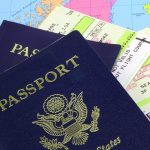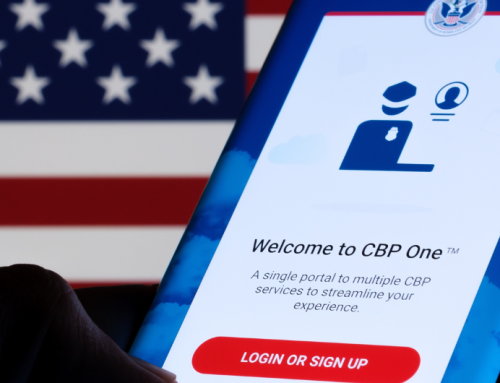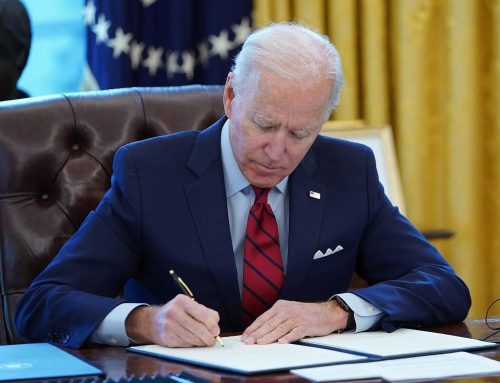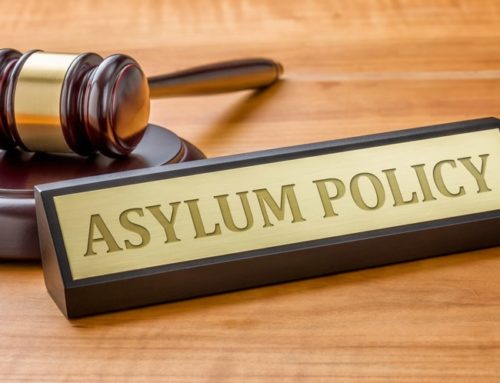 NOTICE: The information contained on this page site is intended to educate the general public and is not intended to provide legal advice. To ensure proper handling of your individual situation, please call +1-703-527-1779.
NOTICE: The information contained on this page site is intended to educate the general public and is not intended to provide legal advice. To ensure proper handling of your individual situation, please call +1-703-527-1779.
Under the H-1B visa classification, an employer may sponsor temporary non-immigrant visas for alien professionals or specialty occupation workers with a bachelor’s degree or higher. The H-1B status is available for initial term of three years and can be extended for an additional three years up to a maximum of 6 years. Typical H-1B occupations include accountants, computer programmers, architects, engineers, doctors and college professors.
Cap Issues
There is an annual cap on number of H-1B visas issued. The current annual cap is 65,000. Additionally, there are 20,000 H-1B visas issued annually to the professionals with a master’s degree or higher. The U.S. Citizenship and Immigration Services (USCIS) begins accepting H-1B applications for the next fiscal year in early April (for work start date in early October). Because the number of available visas is limited, it is extremely important to get started on the process immediately upon the decision by the employer to hire the alien worker.
In 2013, USCIS reached the statutory H-1B cap of 65,000 for fiscal year (FY) 2014 within the first week of the filing period, for the first time since 2008. USCIS received approximately 124,000 H-1B petitions during the filing period, including petitions filed for the advanced degree exemption. On April 7, 2013, USCIS used a computer-generated random selection process (commonly known as a “lottery”) to select a sufficient number of petitions needed to meet the caps of 65,000 for the general category and 20,000 under the advanced degree exemption limit. For cap-subject petitions not randomly selected, USCIS rejected and returned the petitions with filing fees.
If the organization misses the filing period, both the employer and the employee may have to wait another year for the next cap season to file the petition. However, there are cap exemptions for certain types of organizations, for example nonprofit research organizations and universities. Cap-exempt organizations can file H-1B petitions all year round and are not bound by cap season limitations.
Process
To apply for H-1B visa, an employer must be a U.S. company with a federal tax identification number. Foreign businesses not established in the United States cannot use this visa to bring employees here. The employer must prepare and file a Labor Condition Application (LCA) with the Department of Labor (DOL). The employer must describe the position and salary. The LCA also requires the employer to attest to complex facts concerning the wage, working conditions, labor conditions and the giving of notice.
After the LCA is approved by the DOL, the employer must file a petition with U.S. Citizenship and Immigration Services (USCIS), a part of Department of Homeland Security. The petition must demonstrate that the position requires a person in a “specialty occupation.” This means a position that requires a minimum of a bachelor’s degree or its equivalent in experience and/or education in a specific field related to the job.
The employer must maintain a public access file containing information about the required wage to be paid to the H-1B worker and the posting of notice. The employer must also maintain wage and hour records, as well as information concerning working conditions for all similarly situated employees.
Employers are required to pay a fee for each H-1B application. If the employer terminates the services of the employee prior to the expiration of the H-1B status, the employer is also responsible for paying the employee’s return transportation to his or her last foreign residence.
Specialty Occupation
The petition must demonstrate that the position offered is a “specialty occupation”, meaning that it requires at least a Bachelor’s degree or equivalent. The petition must also show that the employee has required qualifications for the specialty occupation and the specific job offered by the employer. If the initial petition does not sufficiently establish that the position qualifies as “specialty occupation”, USCIS may issue a request for additional documentation (request for evidence, known as RFE), which would delay the process. “Specialty occupation” is the subject of most Requests for Evidence issued by USCIS.
The employee must also be able to prove that his or her foreign university degree and/or work experience qualifies as the equivalent of a U.S. degree.
Change of Employer
The employee must maintain lawful status in the United States. To maintain the current H-1B status, the employee must continue to work for the sponsoring employer. Under U.S. immigration laws, a person who fails to maintain lawful status may be deported and never allowed to re-enter the United States. However, the H-1B visa holder may change employers if the new employer files a petition on his or her behalf. Usually, the employee is permitted to start working for the new employer immediately after a change of employer petition is filed.
Change of Status
Individuals who currently hold a valid nonimmigrant visa may apply for H-1B status while in the United States. For example, a holder of F-1 student visa, may seek to change his or her status to H-1B. However, if the worker is overseas, or needs to travel abroad, he or she will need to apply for an H-1B visa at a U.S. consulate. An H-1B employee may also be eligible to change his or her status, if needed, for example, if they marry a US citizen or decide to become a full-time student.
Attorneys at I.S. law Firm have helped many foreign national obtain H-1B visas, H-1B extensions, or change of status to and from H-1B status. To learn more about our services and for consultation, please contact us at +1-703-527-1779 or via e-mail: [email protected].






